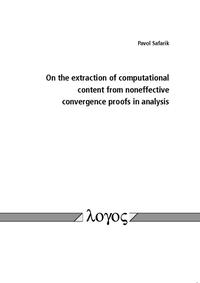
The Fields medalist, Terence Tao, recently emphasized the importance of ``hard'' (or finitary) analysis and connected the finitisation to the methods we will employ in this thesis: ... The main advantage of working in a finitary setting ... is that the underlying dynamical system becomes extremely explicit. ... In proof theory, this finitisation is known as Gödel functional interpretation ... For convergence theorems Tao calls the finitary formulation metastability and the corresponding explicit content its rate(s). In the case of the mean ergodic theorem such a rate can be used to obtain even an effective bound on the number of fluctuations. We introduce effective learnability and three other natural kinds of such finitary information and analyze the corresponding proof-theoretic conditions. Effective learnability not only provides means to know when to expect a bound on the number of fluctuations but also explains a very common pattern in the realizers for strong ergodic theorems. Moreover, we will see how a most natural example for a non-learnable convergence theorem closely relates to a notable exception to this pattern, the strong nonlinear ergodic theorem due to Wittmann. Finally, we show how can computational content be extracted in the context of non-standard analysis. P. Safarik, born and studied at grammar school Grösslingová in Bratislava, Diplom (ger.) and PhD in mathematics at TU Darmstadt.